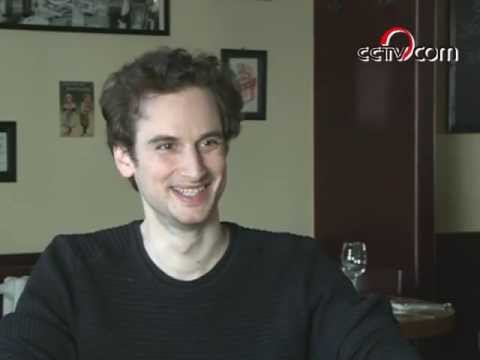Forgive the post… I’m in a Qantas flight lounge, with 3 hours to kill, and the bar is open…
"We hear a lot about “10,000 hours” being what it takes to become an expert. But the majority of people totally misunderstand the idea…
So what does everybody get wrong? 2 things.
First, the “10,000 hour rule” is not a rule and it’s not an exact number. The amount of time varies from field to field. It’s an average. But it’s always a lot and more is better…
In most domains it’s remarkable how much time even the most “talented” individuals need in order to reach the highest levels of performance. The 10,000 hour number just gives you a sense that we’re talking years of 10 to 20 hours a week which those, who some people would argue are the most innately talented individuals, still need to get to the highest level…
What’s the second mistake? Becoming an expert is not merely doing something over and over for 10,000 hours. There’s a right way — and an awful lot of wrong ways — to spend that time."
The above are comments from an interview with Anders Ericsson regarding his upcoming new book - “Peak” The 4 Rituals That Will Make You An Expert At Anything - Barking Up The Wrong Tree
Ericsson’s research was popularised by Malcolm Gladwell in the book “Outliers”. A discussion of this research was had here - Do read this LingQ Twitter post "Ditch the 10,000 hour rule! . . ." - Open Forum in English - LingQ Language Forums
How does the “10,000 hour rule is not really a rule” concept apply to language learning?
Well, for native-level language acquisition we know “10,000 hours” hardly scratches the surface. Pretty much everyone will take around 40-50,000 hours of listening (to native audible content) and around 5,000 hours of speaking to reach a level that starts being acknowledged as “native like” – for verbal conversation, in their first language.
That is to say - 90% listening, 10% speaking - for around 50,000 hours – to begin to reach a native conversational level.
In this respect, Eriksson describing his “10,000 hour rule” as “not an exact number” and as “always a lot and more is better” is correct.
If you want to add further languages to your repertoire, then the amount of time it will take you is dependent on the languages you already know, and, the approaches you use.
So, if you go from a Indo - European language background to learning a Sino-language to a “native-like” level - as an example - how long will it take you?
Here is an example of a French guy, conversing at native-like level in Mandarin : https://www.youtube.com/watch?v=PYlnJpvRwX8
Here is his take on his hours, and approaches, before coming to China:
“I was literally doing 8-10 hours everyday for 4 or 5 years learning Chinese…
People always ask me; you know how Chinese is so hard to study, what did you do?..I’m trying to study and it is so hard, I spend time and it’s still too hard, and my answer is always –well, spend more time then…"
"There’s no secret…Every single person, that up til now, I mean I cannot think of one person, who told me, you know I am working so hard and I still don’t find a way to study properly to learn a language, not one of those people did an average of even 6-8 hours for 4 to 5 years. You know: 6-8 hours everyday,5 years,non-stop. …do that.”
“language is mostly imitation. I’d say at the beginning, imitating perfectly takes 90% listening and 10% practice. Radio is the best way on this matter, and TV to a lesser extent, but TV is fantastic because with the image you can guess the meaning of everything…”
So, before coming to China, he did 15,000 hours, with over 13,000 hours being listening to native content. The interview linked to was 7 years after coming to China. That’s an extra 20-25,000 hours, at least, on top of the initial 15,000 hours. So, it took around 40,000 hours at around 90 % listening – which is (not coincidentally) pretty much the same time as native Chinese speakers take - and he pretty much used the same approach…
Many people will claim the “10,000 hour rule” is “not a rule” – and they are correct – but most often they will do so to sell a product that claims to drastically reduce this time, or fake how quickly they can learn a skill. Be wary of these claims.
The “10,000 hour rule” is not an exact number - but - it is always a lot, and, more is better. For native-like language learning, and for a language that is very different to something you know already – then 50,000 hours with 90% listening is the norm.
Good luck.
Footnote 1: AJATT - 10,000 Hours: Building Listening Comprehension WordPress › Error
Footnote 2: It is worth keeping in mind that not all listening is created equal.
My guess:
Listening attentively = 1x benefit (base standard)
Listening while sleeping = 0x benefit (no value)
Listening inattentively = 0-0.1x benefit (low value)
Zoning in and out = 0.1-0.5x benefit (low value, but ok)
Listening attentively (mindfully) and reading attentively afterwards = 1.5x benefit, or even more (high value)
There are probably other steps.
